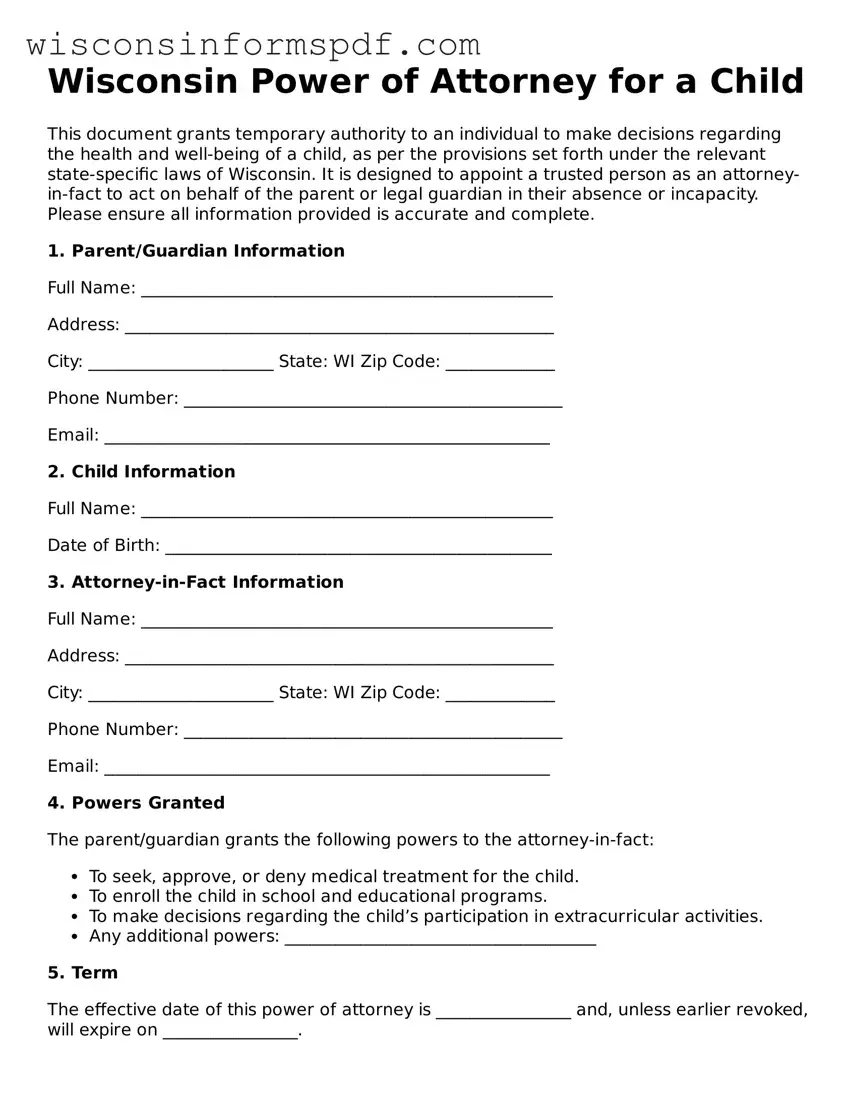Wisconsin Power of Attorney for a Child
This document grants temporary authority to an individual to make decisions regarding the health and well-being of a child, as per the provisions set forth under the relevant state-specific laws of Wisconsin. It is designed to appoint a trusted person as an attorney-in-fact to act on behalf of the parent or legal guardian in their absence or incapacity. Please ensure all information provided is accurate and complete.
1. Parent/Guardian Information
Full Name: _________________________________________________
Address: ___________________________________________________
City: ______________________ State: WI Zip Code: _____________
Phone Number: _____________________________________________
Email: _____________________________________________________
2. Child Information
Full Name: _________________________________________________
Date of Birth: ______________________________________________
3. Attorney-in-Fact Information
Full Name: _________________________________________________
Address: ___________________________________________________
City: ______________________ State: WI Zip Code: _____________
Phone Number: _____________________________________________
Email: _____________________________________________________
4. Powers Granted
The parent/guardian grants the following powers to the attorney-in-fact:
- To seek, approve, or deny medical treatment for the child.
- To enroll the child in school and educational programs.
- To make decisions regarding the child’s participation in extracurricular activities.
- Any additional powers: _____________________________________
5. Term
The effective date of this power of attorney is ________________ and, unless earlier revoked, will expire on ________________.
6. Signatures
This document must be signed by the parent/guardian, the attorney-in-fact, and witnessed by a notary public or two adult witnesses.
Parent/Guardian Signature: _________________________________ Date: ________________
Attorney-in-Fact Signature: _________________________________ Date: ________________
Witness 1 Signature: _______________________________________ Date: ________________
Witness 2 Signature: _______________________________________ Date: ________________
7. Notarization (if applicable)
This section to be completed by a Notary Public if required by law or preferred by the parent/guardian.
State of Wisconsin
County of _________________________
Subscribed and sworn before me on ____________ (date) by _________________________ (name of parent/guardian) and _________________________ (name of attorney-in-fact).
Notary Public: _____________________________________________
Commission Expiration: _____________________________________

